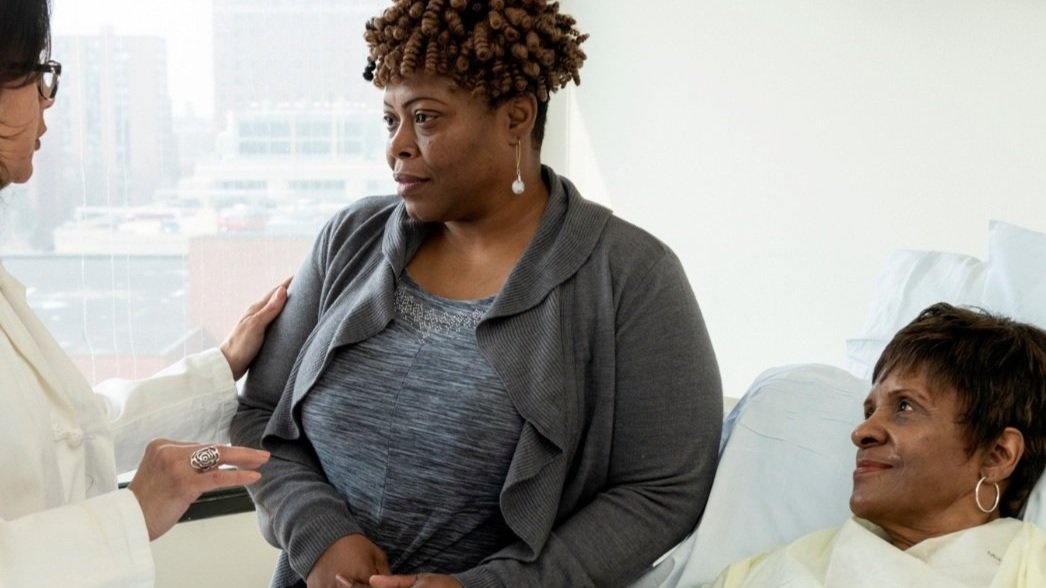The Role of Primary Care & Social Determinants of Health
By Camron Mahdavian
Introduction & Background
This year, our AmeriCorps cohort has begun to gather data on the role of primary care in mitigating social determinants of health (SDOH) like food insecurity, interpersonal violence, housing instability, employment status, utilities access, and transportation barriers. These efforts have inspired a deeper discussion and investigation into the importance of primary care as a mitigating factor in addressing social determinants of health (SDOH) in urban healthcare and underserved populations. These findings highlight the critical ways in which primary care addresses specific social determinants of health:
Food Insecurity: Almost 1 in 10 households in Cook County lived in food-insecure conditions. Primary care providers play a pivotal role by screening for food insecurity and connecting patients with resources like Supplemental Nutrition Assistance Program (SNAP) benefits or local food banks.
Interpersonal Violence: Approximately 41% of women and 26% of men have faced contact sexual violence, physical violence, or stalking by an intimate partner at some point in their lives. Integrating routine screenings for violence into primary care visits can help identify at-risk individuals and provide pathways to safety and support.
Housing Instability: Approximately 2.7 million households in the U.S. receive eviction filings annually.
Transportation Barriers: Lack of reliable transportation is a leading cause of missed medical appointments, especially in urban areas. Innovative solutions, like partnerships with rideshare services, may show promise in reducing this barrier.
Primary Care as a Mitigating Force & Current Challenges
Primary Care serves as a critical gateway to addressing SDOH by providing holistic, patient-centered care. Research shows that individuals with consistent access to primary care have better health outcomes, including lower rates of hospitalizations and improved chronic disease management. Trends from our AmeriCorps cohort’s work suggest that patients with a dedicated primary care provider (PCP) may be more likely to address social determinants of health (SDOH) effectively, highlighting the importance of primary care in promoting health equity. Anecdotally, patients with PCPs report greater confidence in managing their care. While it is difficult to establish a clear cause-and-effect relationship based on initial data, we view primary care as a key factor in mitigating healthcare inequities.
Many individuals, particularly in urban populations, face significant barriers to accessing primary care. Patients frequently mention challenges such as missed appointments due to transportation issues, delayed treatments because of high out-of-pocket costs, and frustration with long wait times or unavailable providers. These experiences are especially prevalent among marginalized communities, who often face systemic biases and language barriers. These personal accounts align with broader statistics that underscore the systemic nature of these challenges and emphasize the need for interventions to improve primary care access.
PCPs are uniquely positioned to act as care coordinators, ensuring patients navigate the complex healthcare system with confidence. PCPs help patients understand insurance benefits, manage chronic conditions, and connect with specialists. For many, they are a comforting presence in a fragmented system, fostering trust and continuity. There are, however, many challenges that prevent primary care connection, as exemplified by the following statistics:
Provider Shortages: The U.S. is projected to face a shortage of up to 55,000 primary care physicians by 2033.
Insurance Challenges: Even insured patients often struggle to afford copays and out-of-pocket expenses, deterring them from seeking care.
Implicit Bias & Discrimination: Implicit bias and stereotypes among healthcare providers can lead to unequal treatment and systemic disparities in care.
Health Disparities: Black and Hispanic populations are less likely to have a regular source of care, contributing to poorer health outcomes.
To encourage aspiring medical providers to pursue careers in primary care and make primary care accessible to all, we recommend the following key actions to make primary care careers more inclusive and accessible to diverse groups:
Expanding Loan Forgiveness Programs: Programs like the National Health Service Corps (NHSC) offer loan repayment to clinicians working in underserved areas. Increasing funding for these initiatives can attract more providers to primary care (NHSC).
Diversifying the Workforce: Encouraging individuals from underrepresented backgrounds to pursue careers as physicians, nurse practitioners, and physician assistants can help bridge cultural and linguistic gaps in care.
Leveraging Technology: Telehealth has emerged as a powerful tool for expanding access to care, particularly for underserved urban populations.
Strengthening Community Partnerships: Collaborations between primary care providers and community organizations can address SDOH more effectively. Initiatives like Community health worker (CHW) integration into care teams may show significant benefits.
Concluding Thoughts
As AmeriCorps members, we stand at the forefront of a unique movement to advance health equity through primary care. We recognize that access to quality healthcare is not just a privilege, but a fundamental right that forms the foundation of a thriving society. Our commitment extends beyond traditional healthcare delivery to address the complex social, economic, and environmental factors that shape community health outcomes. By playing a part in helping patients access primary care, we hope to make a long-term impact on patients' ability to mitigate SDOH risks and better manage chronic diseases.



